I’m very excited to participate in the blog tour for The Vegetarian Flavor Bible with a guest post by Karen Page about one of my favorite food topics: umami. After you read Karen’s wonderful post, be sure to leave a comment to enter my giveaway to win a copy of this amazing book.
How to Get More Umami Flavor From Plant-Based Ingredients by Karen Page
 In our 1996 book CULINARY ARTISTRY, my husband Andrew Dornenburg and I were two of the first American culinary authors to mention “umami,” a then- fledgling concept vying to become known as the “fifth taste.” The fact that our book became a bestselling classic didn’t hurt umami’s rising profile globally as the Japanese-originated concept of savoriness / deliciousness gained new proponents among our readership of professional chefs.
In our 1996 book CULINARY ARTISTRY, my husband Andrew Dornenburg and I were two of the first American culinary authors to mention “umami,” a then- fledgling concept vying to become known as the “fifth taste.” The fact that our book became a bestselling classic didn’t hurt umami’s rising profile globally as the Japanese-originated concept of savoriness / deliciousness gained new proponents among our readership of professional chefs.
When we came out with THE FLAVOR BIBLE in 2008 and shared our now infamous “Flavor Equation” that FLAVOR = TASTE + MOUTHFEEL + AROMA + “THE X FACTOR,” the TASTE section featured the four basic tastes of Sweetness, Saltiness, Sourness, and Bitterness, alongside a mention of Umami (Savoriness) with the note, “…There is growing evidence of a fifth taste, umami…It is often described as the savory or meaty ‘mouth-filling’ taste that is noticeable in such ingredients as anchovies, blue cheese, mushrooms, and green tea, and in such flavorings as monosodium glutamate (MSG), which is the primary component of branded seasonings such as Ac’cent.”
By the time we came out with THE VEGETARIAN FLAVOR BIBLE in the fall of 2014, umami had taken its place in the book as one of the five tastes responsible for “every delicious bite you’ve ever tasted…coming together on your taste buds.” Since we started eating a plant-strong diet in May 2012, the concept of umami has taken on even more importance to us we seek its satisfying effects without meat or cheese.
Where to find umami: beer, beets, broccoli, carrots, corn, fermented foods (e.g, bean pastes), green peppers, green tea, ketchup, miso paste; mushrooms (dried, e.g., matsutake, shiitake), nutritional yeast, onions (esp. caramelized), peas, potatoes, sauerkraut, sea vegetables (e.g., dried, kombu), soy sauce, spinach, sweet potatoes, tamari, tempeh; tomatoes (e.g., ripe, paste, sauce), truffles, umeboshi plums and plum paste, vinegar (e.g., balsamic, sherry, umeboshi), walnuts, wine (esp. red)
It’s easy when it comes to Asian dishes, such as miso soup with shiitakes, tofu, and wakami, which is an umami bomb.
But what about Italian food? Pastas with tomato sauce and mushrooms seem to cry out for something to take the place of umami-rich Parmesan cheese. Happily, some of the Parmesan substitutes we’ve tried seem to be getting better (e.g., Parma brand vegan “Parmesan”), as have been the “cashew ricottas” we’ve been served on pasta dishes (including the zucchini pasta pictured here).
The number-one seasoning in our spice cabinet these days is smoked paprika, which gives legumes an irresistable flavor. Andrew uses it in marinades for portobello mushrooms as well as seasoning his signature split-pea soup. Kalustyans.com sells porcini powder made from powdered porcini mushrooms, which you can use to coat tofu as well as to season dishes.
Miso’s umami-enhancing properties are so extraordinary that it was a staple in our kitchen long before we started our plant-strong diet. Japanese fermented soybean paste is available in as many varieties in Japan as there are types of cheese in the U.S., so it’s incredibly diverse. We use it exactly the same way as we did as omnivores: rub your choice of ingredients – such as tofu – with miso paste, cover, and refrigerate overnight. The next day, wipe off the excess paste before throwing the tofu on the grill or baking it. You’ll be amazed by its extraordinary flavor. You can mix light and dark misos for more complex flavors. As another tip, you can add miso to mashed or pureed vegetables and use this as a sauce.
Just as importantly, umami can be created through cooking techniques, such as browning, caramelizing, grilling, roasting, and sauteeing. The most masterful examples can be found at temples of haute cuisine with celebrated veg tasting menus, such as The Inn at Little Washington and Picholine.
During what turned out to be the best vegetarian meal of our lives, The Inn at Little Washington in Virginia kicked things off by serving us popcorn with shaved truffles on top – later followed by a “Club Sandwich of Eggplant, Grilled Shiitake Mushrooms and Fried Green Tomato on Charred Onions with Burgundy Wine Sauce.” At Picholine in New York City, we were wowed by the savory “braised shortrib-esque” qualities of “Grilled and Smoked Eggplant with ‘Chinoise Flavors’ and Tapioca Pearls,” which was served with a crunchy nori tempura accent.
The secret of adding umami to plant-based dishes? Layering the flavor on, through the right selection of ingredients and application of cooking techniques. If you’re making risotto, take the time to caramelize the onions and/or butternut squash you add to it. If you’re making mushroom gravy, add a bit of nutritional yeast – or, better yet, toasted nutritional yeast, to enhance the flavor even further. Every layer can help you make an even bigger flavor impact!
P.S. Chef Nathan Lyon developed a recipe for “Vegan Umami Paste” that combines several ingredients renowned for their umami (e.g., balsamic vinegar, molasses, nutritional yeast, porcini powder, soy sauce, tomato paste) that adds wonderful umami flavor to a wide variety of dishes, including the roasted eggplant sandwich featured on his website.
~
I have a copy of The Vegetarian Flavor Bible for one person. (U.S. residents only, please.) To enter, leave a comment below telling me what your favorite way to add umami to your food when cooking is. For extra chances to win, follow me on Facebook, Twitter, and Instagram and leave a separate comment for each one to let me know. This Giveaway ends Wednesday January 14 at midnight, EST. A winner will be announced on Thursday January 15.

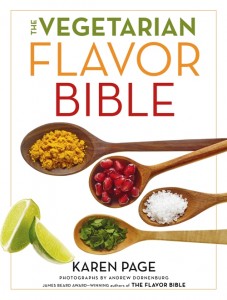
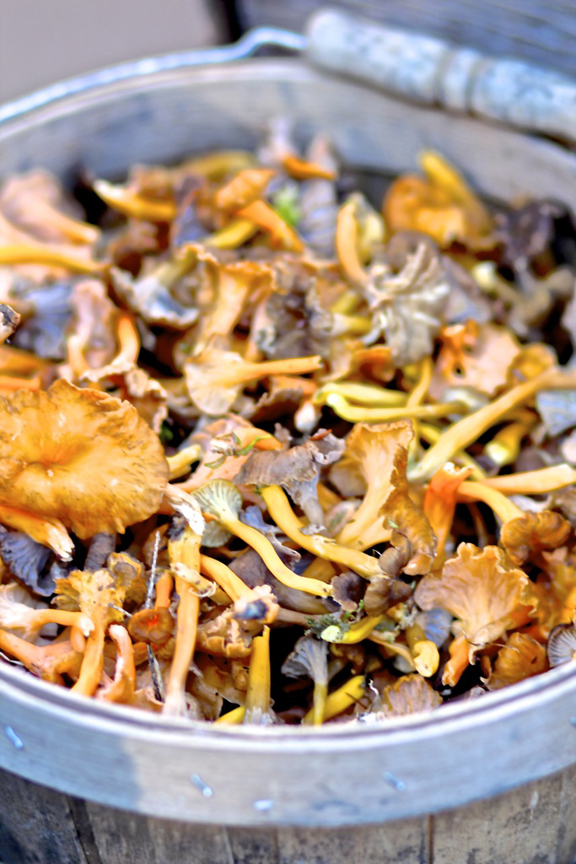
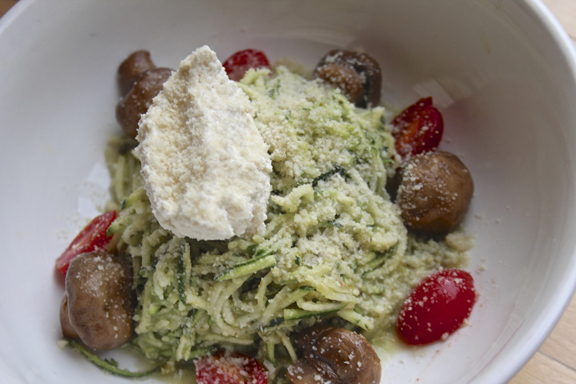
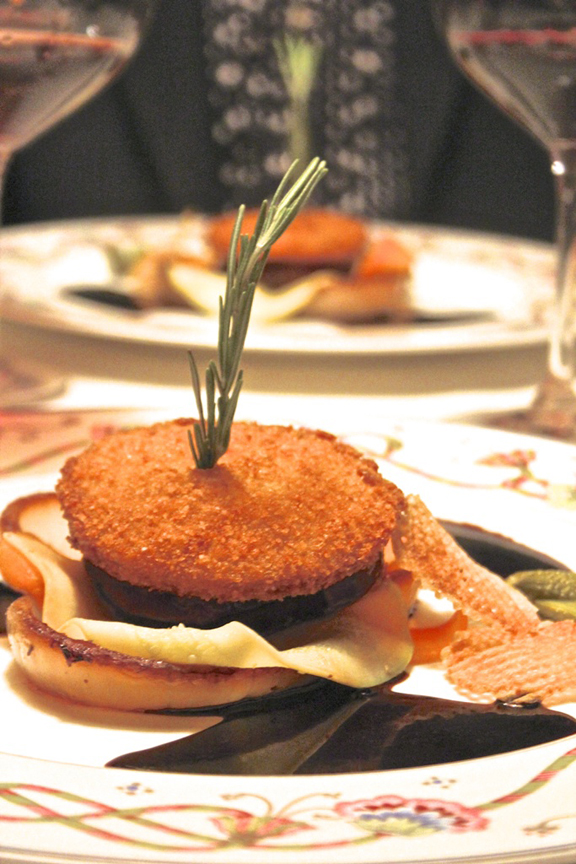






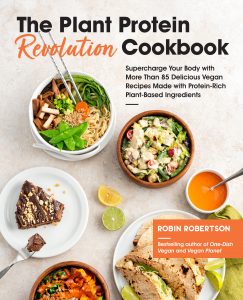
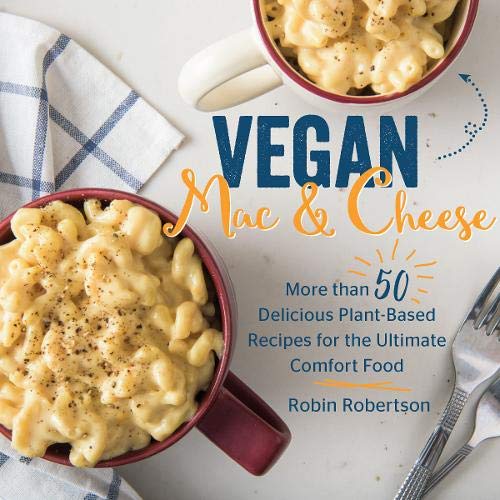
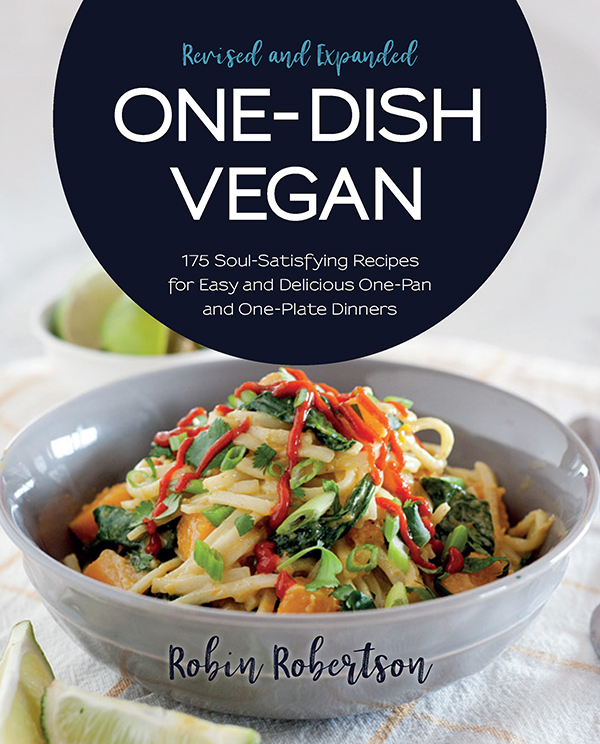
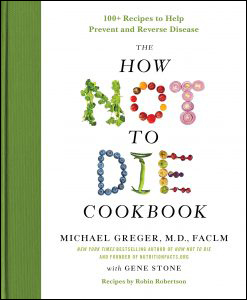
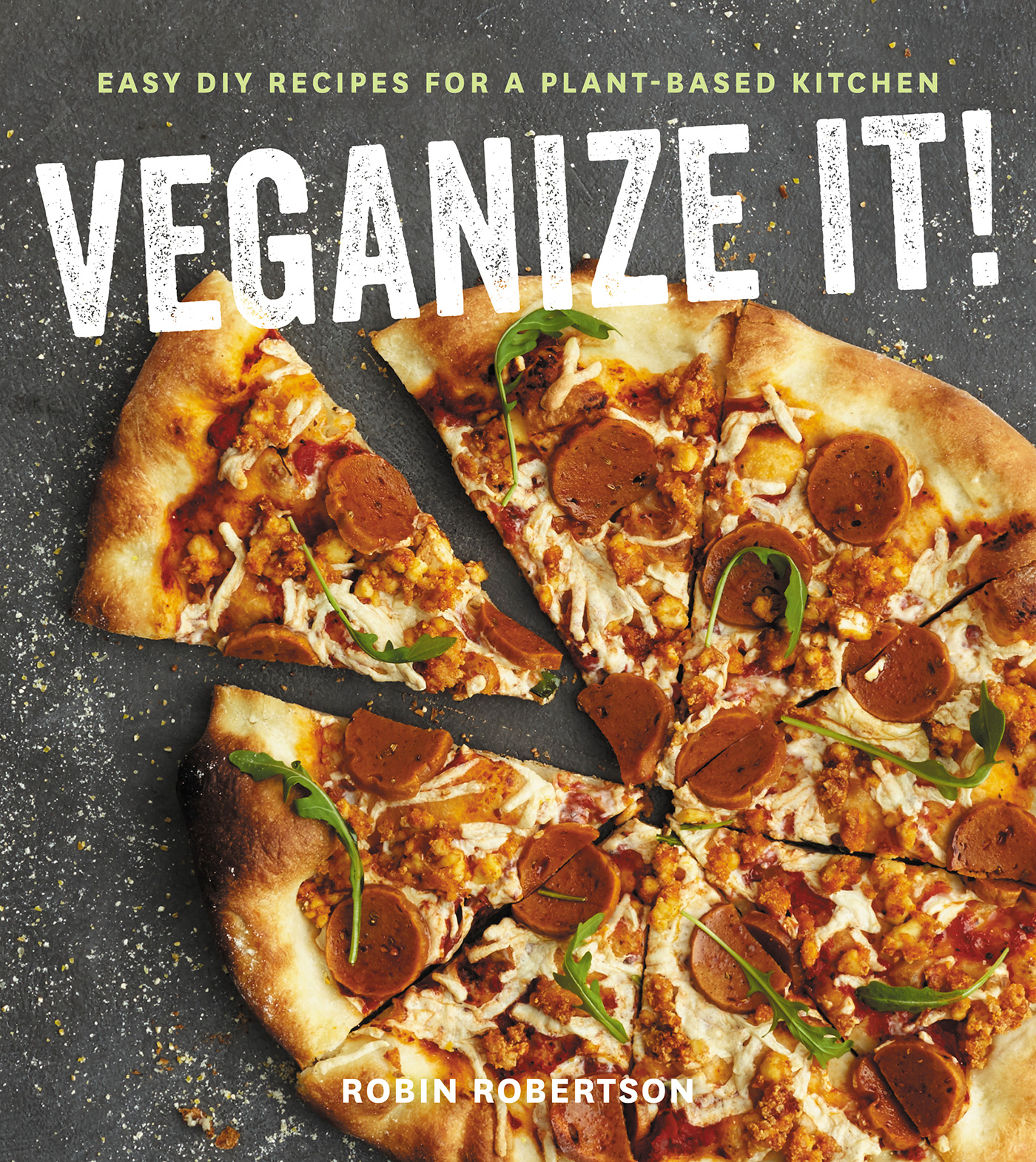
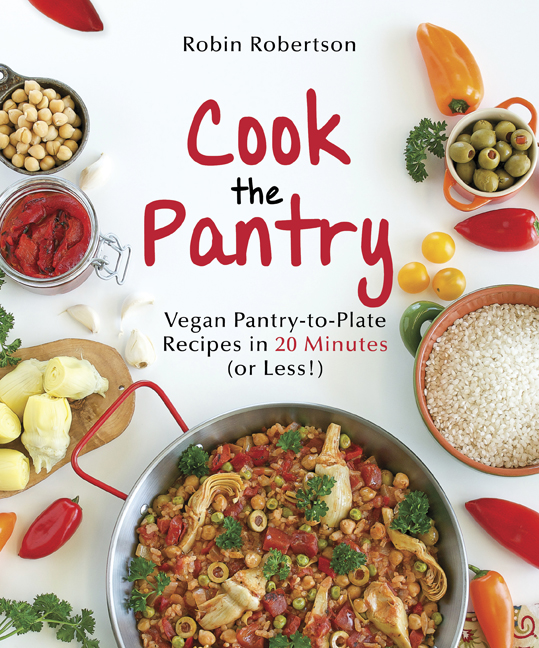
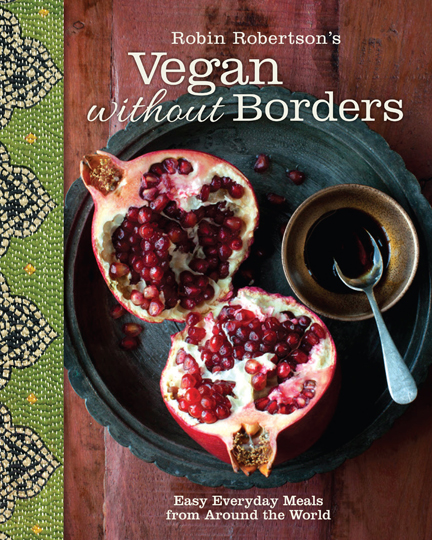
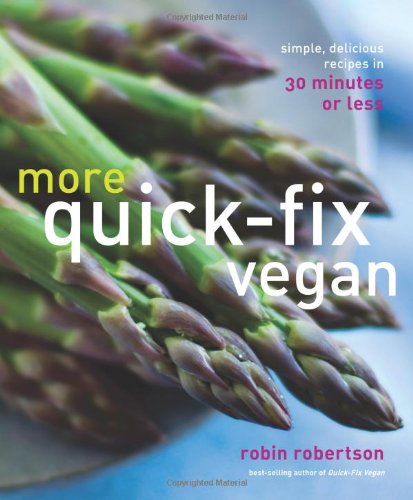
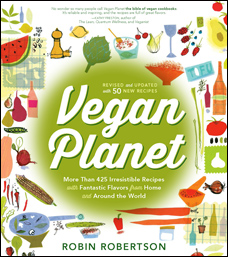
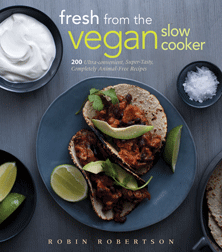

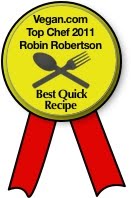



{ 109 comments… add one }
I roast most of my vegetables.
I love adding miso to our marinades!
I love to caramelize things but I also like to toast my grains before I add water. I’d love to see what other ideas The Flavor Bible has! Thanks.
Miso! is a hero in my kitchen.
This book is on my wish list to get. Of course I already follow you an Instagram and Twitter, I would not want to miss a Gary photo 😉
I use Better Bouillion’s No Chicken chicken stock base. I have miso but haven’t used it yet because of being uncertain.
Nooch and mushrooms for umami for me!
I like to carmelize onions, roast a variety of root vegetables and I use miso and nooch in many recipies.
Nutritional yeast adds richness and complexity to most savory dishes.
*Toasted* nutritional yeast!? You just blew my mind. Please tell me the method for toasting nooch is in this book.
Roasting veggies in coconut oil and mushrooms with everything!!!
I haven’t tried umami yet,but I’m looking forward to it. This book is on my wish list!
Mushrooms in everything!
I’m a big fan of nooch!
I grind up dried shiatake mushrooms for soups and stews
I usually use nutritional yeast and sometimes vegan worchestshire sauce but this would be a wonderful resource for new ways! Thanks for the chance.
I like to caramelize my onions.
Shannon Victoria Holmes FB follow I use soy sauce in a lot of my cooking.
Roasting veggies,
mushrooms and miso
Nutritional yeast, Bragg’s liquid aminos and smoked paprika are a few of my favorite ways to add depth of flavor to my plant-based meals. One trick I learned from reading Michael Natkin’s blog Herbivoracious is to add star anise when making vegetable broth.
I follow you on Facebook.
Last year I started using miso in more of my dishes. It adds an amazing flavor. I use mushrooms a lot, too. And I would love to have a copy of The Vegetarian Flavor Bible. I borrowed a copy from the library. It’s an amazingly wonderful book!.
Although I’ve had miso paste in my refrigerator for many years (mostly to make a miso broth), this past year I learned for the first time about using it in sauces to add additional depth & complexity (and yes, that umami flavor!). It has been an eye opener! I’m hooked on one brand of mild yellow miso, but I really do need to branch out and explore some other types. 🙂
I just started following you on Instagram.
I already like/follow you on Facebook!
I follow you on Twitter!
Olives and sauteed mushrooms & carmelizing *all the things* are probably my favorite umami adders. I do also love tamari (I prefer it to soy sauce) and miso.
I’m a big fan of some good ol’ caramelized onions! Also, not sure if this technically adds umami or not, but I’m a huge fan of liquid smoke.
I really like pastes. Thet are easy to store and easy on the wallet.
For soups and stews, a flavor intensifier such as Mato Zest or VegiZest from Dr. Fuhrman’s website.
I follow in Twitter
I follow on Facebook
Mmmm…miso soup – very hearty, comforting to the soul – especially on cold winter days.
Thanks for the chance to win!
I love getting my veggies caramelized
I must have this book!!! So many amazing things to learn being newly Vegan! I felt so alone before connecting to a vast & lovely online community. My favorite way to add flavor is mixing mellow white miso paste & nutritional yeast to steamed vegetables & rice.
I love mushrooms, roasted veggies with italian seasoning, and have just gotten some Penzeys spice blends that are yummy. I’m always looking for something to “spice up” our food, without being too hot.
I’m a big fan of adding dried mushrooms, tomato paste or Tamari to my veg dishes to give them a “meaty” dimension. Would LOVE to have a copy of the new Flavor Bible! Take pity on a poor, 30-something college student!
Chickpea miso!
I “discovered” white miso paste and honey as a new salad dressing combo. It is very common in Japanese restaurants, I just never made it myself.
I put Spanish smoked paprika in almost everything I make now. It is so delicious!
Wonderful post! Thank you, now I have a new way to add flavor to my recipes.
I love nooch, miso, tamari and mushrooms! I’d love this book as it would expand on uses of other umami enhancing dishes!
I follow you on Facebook.
I follow you on Twitter.
I follow you on Instagram.
I love Braggs amino and acv. Also mustards. Would love this book too!
I follow you on Facebook
I follow you on twitter
I follow you on instagram
I need to learn more about umami. I use nutritional yeast frequently and also miso but need more flavor in my life 🙂
I do a lot of outreach to promote veganism and I can see a better knowledge of this would also help me in discussing veganism with non-veg people.
It’s hard to pick just one because each one has its place & I use virtually all of them somewhere. I love that extra layer/depth of flavor they add. Though I do keep the nutritional yeast jar out on the counter & regularly shake some into my palm & pop it into my mouth. 🙂
Roasting vegetables, yellow miso, carmelizing onions and other vegs. The idea of toasting nutritional yeast is very intriguing. I’ve had a hold on this book in our county library system since 10/31/14 and currently place 2nd of 4 in hold requests. Maybe I’ll get it by spring . . . unless I’m lucky and win a copy.
Tamari or soy sauce is a great umami ingredient.I also love roasted garlic and its many applications.
Definitely nutritional yeast! Thank you for the giveaway!
I love adding a splash of balsamic vinegar to stews and sauces!
Smoked paprika. The smokey earthy flavor that I can just sprinkle in is amazing
Love!
Looks like an amazing book! Great ideas!
onions… in everything!
My standards are nutritional yeast, smoked paprika and truffle salt. But I did just grind up some dried mushrooms into powder, shiitakes and porcinis, and have been trying to decide what to add them to! Miso is a little too sweet for me.
WOW! Now I know why I love Asian cuisine so much. It’s the umami flavor! All the sources of umami are all the foods I love. I absolutely adore using miso in savory dishes because, to me, it gives a kind of meat-like flavor (umami) and there are so many flavors. My favorite is South River’s Garlic Red Pepper Miso. I could even eat it off the spoon. I agree about the smoked paprika. Where I live I can get bourbon smoked paprika which gives foods another umami lift made by Rattlesnake Hill Farm. Being vegan, I can always find remarkable flavors to enhance my dishes from around the world using umami veggies and other spices.
It depends on what I am making but I’d say my quickest go to is roasting, or adding roasted or smoked spices to dishes. We especially love smoked salt, smoked pepper, smoked paprika or roasted cumin, roasted ginger. Miso adds a depth of flavor that is hard to describe it kicks everything up a notch. Can’t wait to learn more techniques with this book.
I use the South River Misos all the time. I also like adding mushrooms and the Sweet Safinter Smoked Spanish Paprika.
Thank you!
I like to roast some of the garlic before adding it to a dish, also, Braggs liquid aminos… and different oils in the same dish ( avocado, hemp, coconut or sesame mixed with good olive oil is so good!)
Smoked paprika and nutritional yeast are the ingredients I can’t cook without!
I have porcini, truffle, and pino noir salts that I use on just about everything!
Already follow you on Facebook!
Followed you on Instagram!
OH…so many wonderful ways to add flavor….nooch, mushrooms, lots of love…..I also like to use beer and wine in cooking….and would dearly love to win this book!!!
I use mushrooms to add umami
I like tossing beets with miso paste and olive oil and roasting. It makes a wonderful side dish.
My absolute favorite go to is nutritional yeast, super easy to just leave sitting the fridge for when I need that extra flavor sense.
I also am a big fan of incorporating olives, sun dried tomatoes, and mushrooms into my food to get those savor/salty/filling-ness qualities to meals
It usually changes depending on what I’m making, but I think the most common (for me) is caramelizing onions/garlic before adding the rest of the ingredients to most recipes. I do it quite often in soups before blending everything in the Vitamix!
I follow you on Facebook (account uses e-mail I provided if you need to check).
I follow you on Twitter (@ninjapooper).
I follow you on Instagram (micheller88).
Using miso is my go-to!
I follow on Instagram!
Just followed on Facebook 🙂
Just followed on Twitter too!
Depending on what I am making either nutritional yeast or mushrooms.
I follow on facebook
My umami workhorses are roasted tomatoes and miso. I love the Flavor Bible, by the way! So excited to see the veg version!
Following on FB now too 🙂
Nutritional yeast!
I don’t like mushrooms but love adding flavors to my foods.
LOVE nutritional yeast and add it to most dishes.
Tomato paste in goulash.
I love the taste of miso and add it anywhere I can.
I use a lot of dried mushrooms ground fine
karengdelaney follows on Instagram
@KDFF follows on Twitter
Karen Goodwin Delaney likes you on Facebook
I follow you on Facebook and have your books!
I add mushrooms and miso to a lot of my dishes to add a umami touch.
I love to prepare dishes with miso for umami. Thanks for the giveaway!
I follow you on Facebook 🙂
I follow you on Twitter 🙂
Miso, Braggs, Smoked sea salt, Smoked paprika, even Liquid Smoke, plus roasted veggies, whether in pasta dishes, on pizza, or just on the side. Yum! I am so intrigued by this book, can’t wait to get my hands on a copy!
I have Liked you on Facebook.
I love to add either a bit of miso or a splash of tamari, depending on the dish. They each give depth of flavor without overpowering the other ingredients.
Toasted ground walnuts, and also caramelized onions. They seem to make everything taste better.
I like you on Facebook
I follow you on Twitter (I’m @justaboutvegan)
I just started following you on Instagram. Thanks for the giveaway!
This was a great little education on umami. I thought it was just about adding soy sauce!
I know this article is a bit old, but I like using miso, yet have found that Korean soybean paste known as Doenjang (please don’t call it miso!…Just kidding! ) has an even more complex flavour than the typical Japanese miso – I love adding it to vegan “cheese” sauces, salad dressings, etc… and, oh yeah – Korean recipes!! The different types of Doenjang you can get are really distinct, the flavour even varies from brand to brand. It has really taken my cooking a step further and is a staple in my kitchen 🙂
Koji !! You can make it yourself, or buy it pre-made. We use it for everything from salads to soup stock.
When I saute mushrooms and onions, I deglaze the pan and add the resulting sauce to recipes.